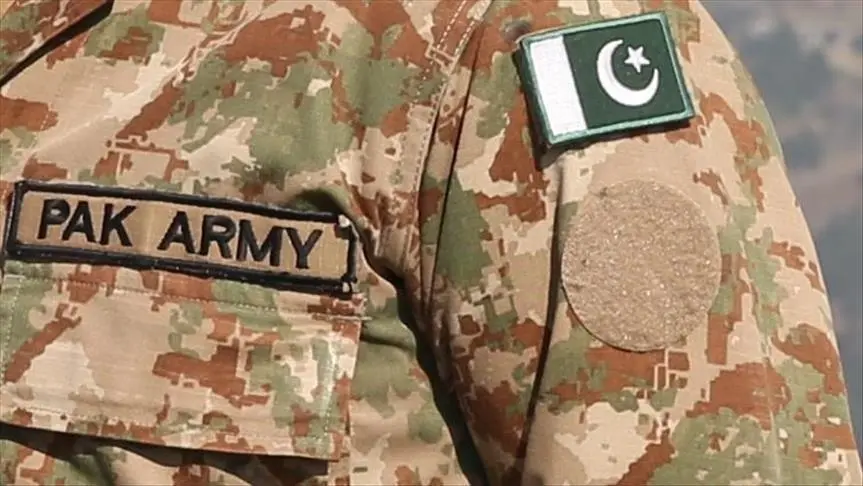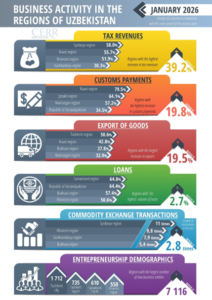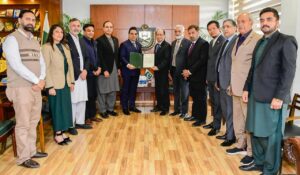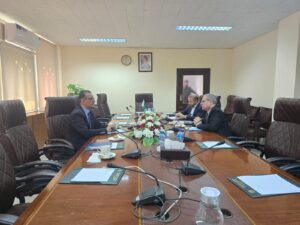Pakistan Army: A Pillar of Development and Defense

Despite a recent decline in popularity, the Pakistan Army remains crucial for the country’s survival, often described as its “Center of Gravity” or the key force preventing its collapse against external threats. Recognizing their inability to defeat the Army militarily, adversaries have launched a sophisticated propaganda campaign on social media to discredit it. This campaign has influenced the general public, particularly the youth, portraying the Army as responsible for Pakistan’s political and economic challenges. While some spread this disinformation unknowingly, others do so deliberately, often with support from hostile intelligence agencies. Despite this, the Pakistan Army continues to make significant contributions to national development, social services, and security.
Army’s Role in National Development
Infrastructure Development: The Army has been instrumental in developing infrastructure, recently through initiatives like the China-Pakistan Economic Corridor (CPEC), which aims to transform Pakistan’s economic landscape. The Frontier Works Organization (FWO) has been credited with the construction of bridges, roads, tunnels, airfields and dams in Pakistan, making invaluable contributions in national development. National Logistics Cell (NLC) plays a vital role in Pakistan’s national development through its contributions to logistics, infrastructure, and trade facilitation. NLC’s diverse operations, including freight management, construction and engineering, directly impact the country’s economic growth and connectivity. In addition to making invaluable contributions in national development, these organizations provide jobs to thousands of individuals. In GB and Azad Kashmir, Army’s regular units remain constantly engaged in rescue operations, road openings in case of slides, floods and snow storms etc.
Education Sector: The Army Public Schools and Colleges System (APSACS) has improved education accessibility and quality, addressing the national issue for millions of out-of-school children. APSACS is a nationwide network of over 220 schools for children aged between 3 to 18 yrs. The current student population has touched over 300,000 and the teachers’ strength has reached more than 18,000. The schools are situated in high altitude areas, urban hubs, suburbs and developing areas of Pakistan thereby enriching the educational fabric of the country. Besides Army wards, these schools cater to a large number of civilian student population regardless of their socio-economic backgrounds.
Additionally, many universities and colleges are making tremendous contributions in the fields of medicine, engineering, and social sciences. A large number of colleges and Institutes operating across the country under the auspices of National University of Science and Technology (NUST)having 7 campuses, with footprints in all 4 provinces, with 21 schools, colleges and centers, 24,000 students with more than 58,000 alumni spread in 70 countries.
National University of Medical Sciences (NUMS), is a Federal Public Sector University. It’s backed up by an extensive network of 45 Military Hospitals, 10 Single Specialty Institutes, 9 Medical Colleges, 4 Dental Colleges, 6 Nursing Colleges and 3 Allied Health Sciences Institutes making it the country’s largest healthcare provider in terms of trajectory and patient volume. The research-led institution provides opportunities to undergraduate and postgraduate education in Medicine, Dentistry, Nursing, Allied Health and Veterinary Sciences.
National University of Technology (NUTECH) was established in 2018 as a pioneer ‘University for Industry’ to create, develop, implement and promote existing, emerging, and future technologies for the country through world-class education in science, engineering, technology, other technologies, professional certifications, technical & vocational skills and other areas of scholarship. The University’s curricula and academic systems are based on the best international practices of world’s leading technology universities of USA and EU. Its learning systems are designed to promote science, engineering and technology based knowledge eco-system to inspire the youth as promising entrepreneurs of tomorrow. The undergraduate programs of NUTECH satisfy Washington accord, ABET and Bologna Process. NUTECH is in the process of planning its main campus to house 20,000 – 30,000 students in future.
Besides, a large network of cadet colleges spread across the country are given active support by the Army through provision of training staff. Whereas, three Military Cadet Colleges established by Army’s own resources are fully financed, and managed by Pakistan Army. These are Military College Jhelum, Military College Murree, and Military College Sui. Primary target of these military cadet colleges is to educate and nurture young boys of less privileged class and remote areas, for potential career in Pakistan Army and other sectors. Graduates of these military colleges are scattered all over the world, proving mettle in variety of fields. In addition to educational institutions, a network of girls’ and boys’ hostels are established in various cities of the country. These hostels provide free messing, lodging, and safe and organized environment to the students of far flung areas studying in the cities.
Health Sector: Army provides state of the art medical facilities with highly skilled healthcare professionals through its network of military hospitals and medical facilities. Army’s medical facilities are available not only to serving and retired Army personnel, but to general public as well. These facilities serve as blessing for people of remote areas of Gilgit Baltistan (GB), Azad Jammu and Kashmir (AJK), where public and private sector medical facilities are either nonexistent or very limited. In some cases, Mobile Medical Units are deployed in remote areas, bridging healthcare gaps and ensuring essential medical attention for marginalized populations. Medical camps are established on regular basis in far-off areas of Sindh, Balochistan, KP, GB, and AJK.
Fauji Foundation: Starting with a meager amount of Rs. 18.2 Million in 1954, Fauji Foundation is now running 18 major industries. In addition to contributing to national exchequer, income from these industries is utilized to serve around 9 million beneficiaries. Generally, over 60% of the income goes towards welfare activities. In the field of education, it is running 131 institutions, with over 75,000 students, and over 3,000 faculty members. Ever-since its inception it has awarded stipend amounting over Rs. 5.4 Billion to more than 4 million students. In the field health care, Fauji Foundation has 11 large size hospitals in major cities, and 35 Medical Centers and 28 Health Clinics in unattended areas. Furthermore, a state of the art Artificial Limb Center is established in Fauji Foundation Hospital Rawalpindi. This provides services to ex-servicemen, their families, and to civilian patients with free of cost treatment for those eligible for zakat. The Pakistan military operates various businesses and enterprises, contributing significantly to the country’s economy. In FY 2022-2023 alone these enterprises paid around 360 billion rupees in taxes and duties. Key sectors include: Real estate and housing, Manufacturing, Finance and banking, Energy and infrastructure. Their economic contribution is substantial.
Agriculture Sector: In order to improve agriculture sector, the Army undertakes afforestation initiatives, transforming wastelands into cultivable settlements, and development of Livestock farming, Poultry, and fisheries sectors. Pakistan Army’s Green Pakistan Initiative – a joint venture of the Government of Pakistan and Pakistan Army – is aimed at enhancing agricultural development in the country. Through this initiative, millions of acres of barren, uncultivated and desert lands are transformed into productive modern farms. Its key features include; Corporate Farming, Live Stock Development, and Afforestation. After identifying, it acquires wastelands of the provinces on lease under Joint Venture agreements. These lands are then allocated to interested individuals and groups to undertake corporate farming projects. Its key objectives include: Food security, economic growth by increasing agricultural exports and reducing imports, to enhance productivity and efficiency. Its key components are; Green Agri Malls, Smart Agri Farms, Agriculture Research and Facility Centre, Live Stock Development, and Water Management. The Livestock component i.e. Green Corporate Livestock Initiative of this project has established a number of facilities where recently imported animals of superior breeds are housed for reproduction and distribution to the farmers. Main objective of Livestock program is to improve dairy yield and meat production, modernize fisheries, and support poultry sector. Herd transformation program has been implemented through use of modern technologies, like artificial semen etc.
Sports: The Pakistan Army significantly contributes to sports development by providing facilities and coaching to young talent, accessible to both civilians and military personnel. Through its Sports Directorate, the Army identifies promising athletes nationwide via talent hunts, offering top-tier training at advanced complexes in Peshawar, Quetta, Rawalpindi, and Karachi. Guided by domestic and international experts, these athletes compete nationally and globally, fostering excellence, national integration, and unity. The Army organizes sports events, outreach programs, and provides coaching and financial support, enhancing Pakistan’s athletic landscape despite operational commitments.
Social Welfare: Organizations like the Army Welfare Trust (AWT), and Fauji Foundation contribute to social welfare, poverty alleviation, and economic development, enhancing the quality of life for millions of Pakistanis. AWT and Fauji Foundation play significant roles in social welfare, focusing on supporting retired military personnel, their families, and dependents of martyrs. Both organizations generate funds through various business ventures to finance welfare activities. Their key contributions include provision of jobs for a short term to retired military personnel and to the civilians on a long term basis. They support orphans, widows, and especially abled personnel. Fauji Foundation operates a number of hospitals, schools, and vocational training institutes, providing education and technical training to both military and civilian population.
Disaster Relief and Humanitarian Assistance: Regardless of its role and obligations, it’s the Pakistan Army that nation counts on, in case of any disaster whether natural or manufactured. The Army’s rapid response units have saved countless lives, provided essential aid, and restored normalcy in the aftermath of natural disasters. Army’s relief works during earthquakes, floods, accidents, and other natural calamities are a few to quote.
UN Peacekeeping Missions: Pakistan Army is one of the largest and oldest troops contributing force to the United Nations Peace Keeping missions in conflict zones in across the world. Thus projecting Pakistan’s commitment to global peace and security, improving the country’s international standing. Pakistan Army’s contingents are widely praised for their professionalism, devotion, and invaluable contributions to international peace and security by various UN leaders and international dignitaries. Pakistan has participated in 46 UN peacekeeping missions in 29 countries, deploying over 235,000 troops, including women peacekeepers, over the past six decades.
Foreign Military Training Missions: Pakistan Army has contributed a great deal in establishing and running of military training institutions of friendly countries. Additionally, it helps allied nations in training, and organizing their armed forces. Many gulf countries are benefiting from Pakistan Army’s professional expertise and idyllic organizational model.
Army’s Role Against External Threat
Pakistan Army has consistently demonstrated its ability to protect the nation’s sovereignty and territorial integrity, notably during past wars and the Kargil conflict against Indian forces. Its border presence ensures security, enabling economic progress. In the 2025 India-Pakistan conflict, sparked by India’s “Operation Sindoor” on May 7 following the April 22 Pahalgam attack, Pakistan’s Operation Bunian-al-Marsoos, led by Field Marshal Syed Asim Munir, achieved remarkable success. The Army downed 6-7 Indian fighter jets, intercepted two Indian missiles targeting Shorkot airbase, and struck key Indian military installations, including airbases in Udhampur, Pathankot, Adampur, Bhuj, and Bathinda, damaging equipment like the S-400 system and other strategic sites. This response showcased exceptional tri-services coordination, earning recognition as a potential case study for modern militaries.
In short, Pakistan Army’s response to external threats from India demonstrates its commitment to defending the nation’s sovereignty and territorial integrity. The military’s achievements in the recent conflict showcase its capabilities and readiness to counter any external aggression.
Anti-terrorism Operations
Since the 9/11 attacks, the Pakistan Army has been engaged in a challenging war against terrorism, facing groups like Al-Qaeda, Afghan Taliban, Tehreek-e-Taliban Pakistan (TTP), and Balochistan Liberation Army (BLA), despite limited success by the U.S. and its allies in Afghanistan. Operations like Zarb-e-Azb and Rah-e-Nijat significantly reduced terrorist activities, restored peace, and disrupted militant networks. However, the 2021 U.S. withdrawal from Afghanistan and Pakistan’s release of captured Taliban fighters led to a resurgence of TTP and BLA, extending their reach into Khyber Pakhtunkhwa, former FATA, and Balochistan, causing heavy losses. Despite Pakistan’s repeated appeals to the Afghan Interim Government, led by the Afghan Taliban, to refrain from supporting the TTP, BLA, and other anti-Pakistan groups, the Afghan authorities have consistently failed to act and have been complicit in terrorist attacks targeting Pakistan. These groups have been found utilizing weapons and equipment left behind by the U.S. following its 2021 withdrawal from Afghanistan. The Afghan Taliban’s growing alignment with India further corroborates their tacit approval and covert support for TTP, BLA, and other entities hostile to Pakistan’s security. Under Field Marshal Syed Asim Munir, fresh operations in these regions have achieved notable successes, demonstrating the Army’s commitment to national security and regional stability despite ongoing challenges.
Despite the recent surge in negative social media campaigns targeting the Army and its institutions, it’s essential to highlight the significant contributions the Army makes to national services. Though may not be ideal, our Army is a vital institution that has protected and stood by us in crises. Let’s reject propaganda and stand up for our country, Army, and our values. Despite challenges, it remains a symbol of national unity and resilience. The Army’s role in national development, security, and stability is invaluable. It continues to promote patriotism, national pride, and unity across regions and communities. The Army’s motto, “Unity, Faith, and Discipline,” resonates with the nation’s aspirations. As Pakistan navigates complex challenges, the Army’s commitment to national development and security will remain crucial. With faith in our institutions and a united resolve, Pakistan can overcome the challenges that it confronts. We need to know that a strong military and national support are interdependent. No nation can survive without a strong military, and no military can fight without support of the nation.


